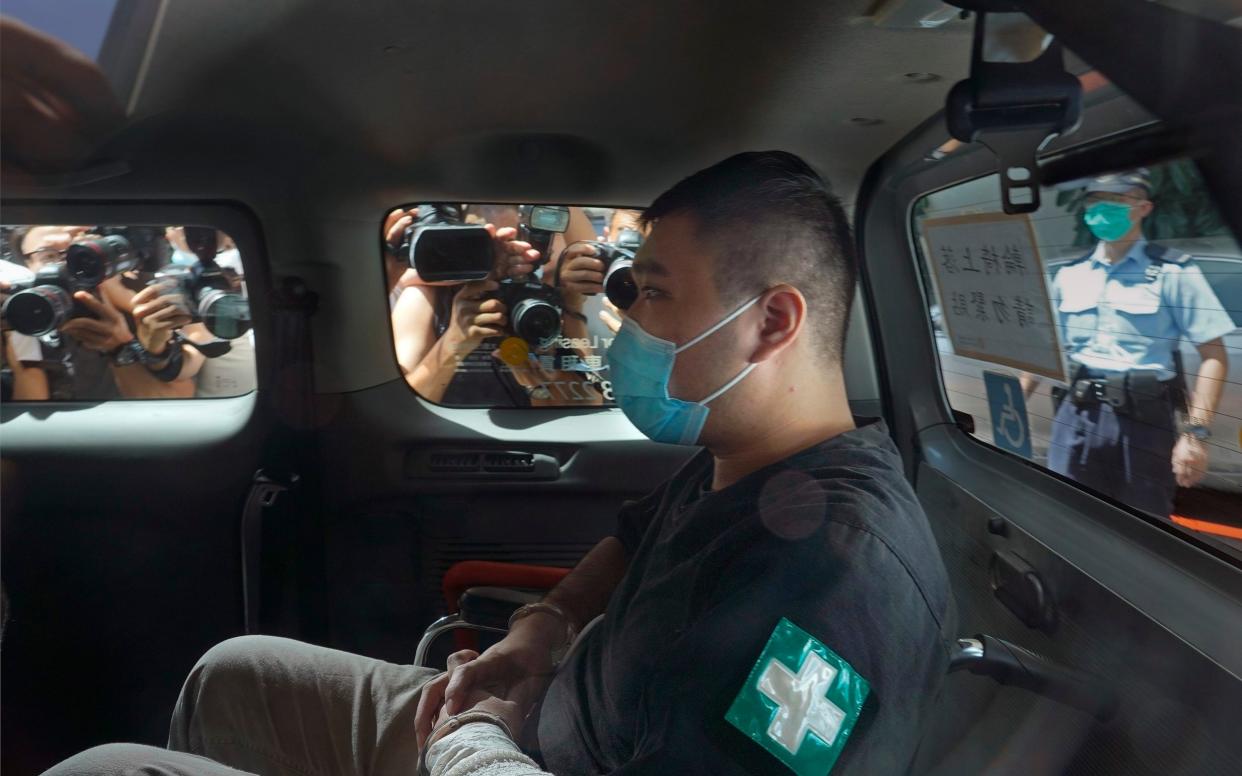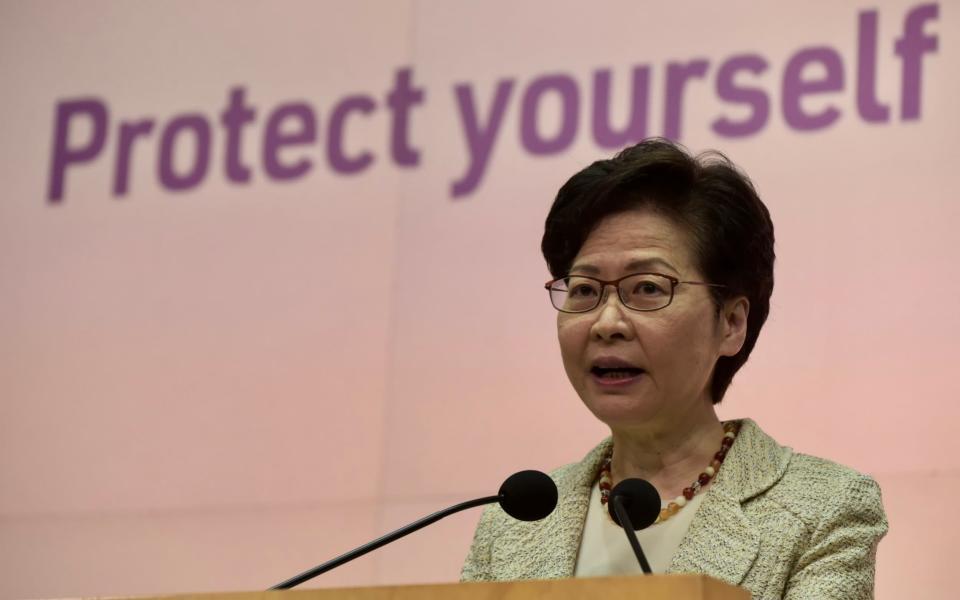Hong Kong court denies jury trial to first person charged under national security law

- Oops!Something went wrong.Please try again later.
Hong Kong’s High Court has ruled that a criminal trial can take place without a jury, dealing a heavy blow to the reputation of the territory’s legal system.
The court on Thursday declared that the first individual charged under the new National Security law would instead have his fate decided by a panel of three judges.
The ruling marks a sharp deviation from the norms established under British rule of the city-state and comes as Beijing tears up the freedoms promised to the population when it ended in 1997.
Judge Alex Lee said that there was “nothing inherently unreasonable” about a trial without a jury, citing the need to protect the safety of the potential jurors.
Tong Ying-Kit, 24, will be the first alleged criminal tried under the new system after he was arrested for driving a motorbike into police on July 1 last year.
More than 300 people were arrested in protests against the imposition of the National Security law, which threatens life imprisonment for a range of hazily-defined crimes including ‘subversion’.
The three-judge panel will be selected by the city’s embattled leader Carrie Lam, who has overseen the crackdown on democracy ordered by Beijing following months of protests against its growing influence in the financial hub.

Hong Kong's Secretary of Justice, Teresa Cheng, informed the defendant's legal team in February that trial by a jury would risk "the personal safety of jurors and their family members".
Mr Tong filed for a judicial review of the decision, but Mr Lee on Thursday rejected his appeal. The trial will begin on June 23 2021. If convicted, Mr Tong will face a maximum sentence of life imprisonment.
In the written judgement released on Thursday, Mr Lee said that "there is nothing inherently unreasonable in directing a trial by a panel of three judges sitting without a jury."
Such measures were necessary, he said, "when there is a perceived risk of the personal safety of jurors and their family members or that due administration of justice might be impaired."
Article 46 of the National Security Law provided three instances where jury trials are not required: protecting state secrets, cases involving foreign forces and protecting the personal safety of jurors.
Along with the no jury trial precedent, the presumption of bail has also been removed for national security crimes.
In his application, Mr Tong's legal counsel Philip Dykes argued that trial by jury was "not only a protection against tyranny but also an insurance that the criminal law in its application in a case will conform to the ordinary man's idea of what if fair and just". Mr Tong is the only person so far charged with an explicitly violent crime. All other national security charges have been for an accused's political views or speech.
Mr Tong faces one count of terrorism and one count of secession - the latter because he was allegedly flying a banner that displayed the popular protest slogan "Liberate Hong Kong, revolution of our times".
Additional reporting by Wendy Xu in Beijing

